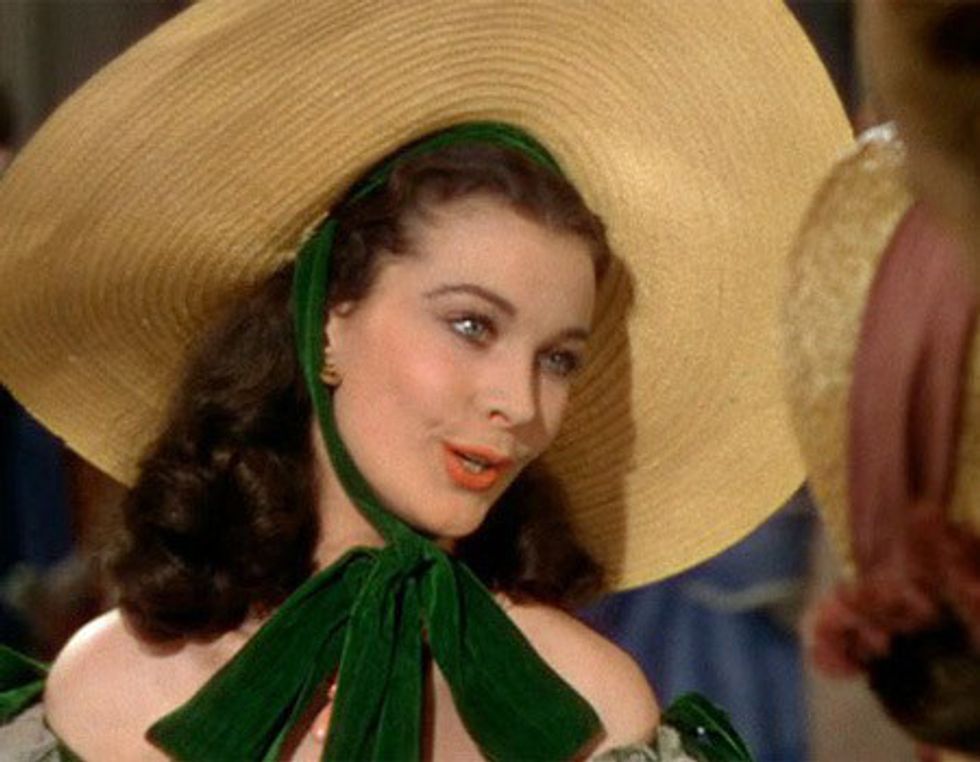Classical Hollywood movie buffs may remember "Gone With the Wind" for Vivien Leigh's fiery interpretation of Scarlett O'Hara, its astute depiction of the American South, or its famous one-liners.
Few remember this movie as a revolutionary turning point for African Americans in American cinema.
On February 29, 1940, Hattie McDaniel became the first African-American actor to win an Academy Award for her role as "Mammy" in the iconic 1939 film, Gone With the Wind. According to Molly Haskell in her book "Frankly My Dear: Gone With the Wind Revisited," during the ceremony at Coconut Grove, McDaniel and her guest were forced to sit at a separate table in the back of the room, away from the white cast members. The film's producer, David S. Selznick, had to ask the event's locale, the Hotel Ambassador, to make an exception to their "white only" rule. However, nearly 80 years later, not much seems to have changed.
On June 10th, 1895, Hattie McDaniel was born in Wichita, Kansas. In 1910, she left school to perform with her father and brothers in traveling minstrel troupes. While touring, she became a prolific songwriter. In the 1920s, she wrote, performed, and recorded songs such as "I Thought I'd Do It" with groups such as "The Melody Hounds," and received air time on radio stations in Denver, CO.
As a musician, she was one of the first African-American women to appear on American radio. Later, she would also be one of the first African-American women to appear on television, thanks to her radio-turned-television comedy series, "Beulah" (1945-1952). As an actress, it is estimated that she starred in over 300 films (although she only received credit for 80 roles). Notable roles include Queenie in the 1936 "Show Boat" revival and Rosetta in "Saratoga."
In "Gone With the Wind," McDaniel portrays Mammy, a former slave turned house-servant who loyally follows Scarlett O'Hara from one disaster to another. She received backlash from scholars and activists of the black community who believed that her portrayal of an almost eagerly obedient freed slave was demeaning and reductive. The movie does little to establish or develop her character; Mammy fits easily into the "Mammy" archetype for which the character was named.
In this film, Mammy is a supporting character who puts the needs of her white masters (and later "employers") over her own. In the above clip she appears to relish her role as housekeeper and is happily subservient; she fusses over Scarlett's eating habits and tucks a napkin under her chin. Movie-goers in the 1930s would've wanted to focus on the "main storyline" of the white characters, not the brutality and genocide of the Southern slave trade. Americans with parents or grandparents who had owned slaves certainly frequented theaters during this time, and many still yearned for the "good ole days" of the Antebellum South.
McDaniel's portrayal of a Southern slave did not challenge the political, social, or racial ideologies of white viewers and certainly catered to a crowd who expected to see a stereotypical African American performance. On Ferris State University's Jim Crow Museum website, Dr. David Pilgrim discusses the Mammy stereotype, noting that "The slavery-era mammy did not want to be free. She was too busy serving as surrogate mother/grandmother to white families. Mammy was so loyal to her white family that she was often willing to risk her life to defend them." Additionally, "the mammy caricature implied that black women were only fit to be domestic workers; thus, the stereotype became a rationalization for economic discrimination." McDaniel's character in "Gone With the Wind" was not only a problematic portrayal of black (and especially black women's) identity, but entirely common.
Performances such as McDaniel's were absolutely "normal" in this era, and the Mammy character was, in fact, one of the only roles for which black women were considered. McDaniel was typecast as a domestic servant or maid in many more films, including "The Male Animal," "Song of the South," and "Since You Went Away.' She was quoted as saying, "Why should I complain about making $700 a week playing a maid? If I didn't, I'd be making $7 a week being one."
I do not mean to diminish the significance of Hattie McDaniel's accomplishments. As an actor, musician, and performer, her successful career speaks to her talent and dedication as a professional in an industry crippled with systematic racism. She combatted seemingly insurmountable sexism and racism only to emerge as a successful entrepreneur and working professional in an era when most women were still keeping house.
Historically, black actors have been forced to choose between self-exploitation and under-representation in the American movie industry; in fact, "choose" would be a kind word. People of color are still typecast as racial/ethnic archetypes in an industry dominated by white executives, directors, producers, and writers. We may celebrate Hattie McDaniel's Academy win as a progressive step towards equality or one of the first of many attempts to prove that Hollywood "isn't racist anymore." However, the all-white 2016 Academy Awards should be some indication of how far we still have to go.
Has that much really changed? The same number of non-white actors were nominated for the 11th and the 88th Academy Awards: 0. In 2016, brown and black actors still face overt discrimination. The work they do is blatantly ignored on a national level. Few remember McDaniel's performance in "Gone With the Wind" as a revolutionary turning point for African Americans in American cinema...maybe because it wasn't.






















